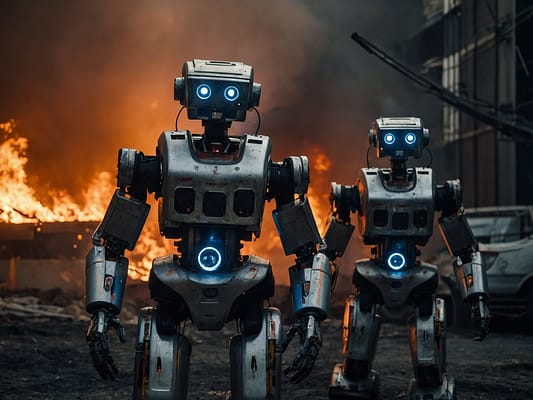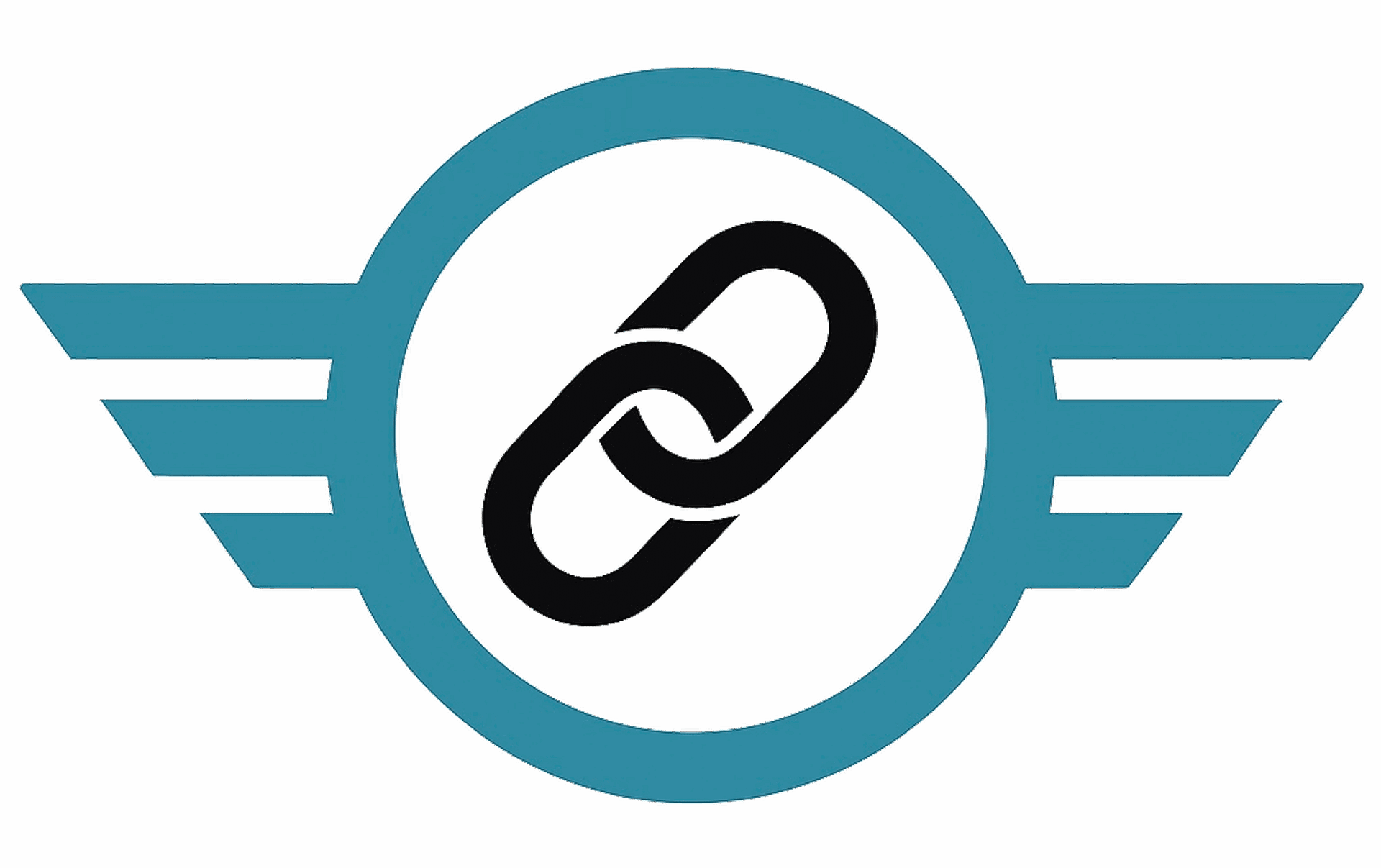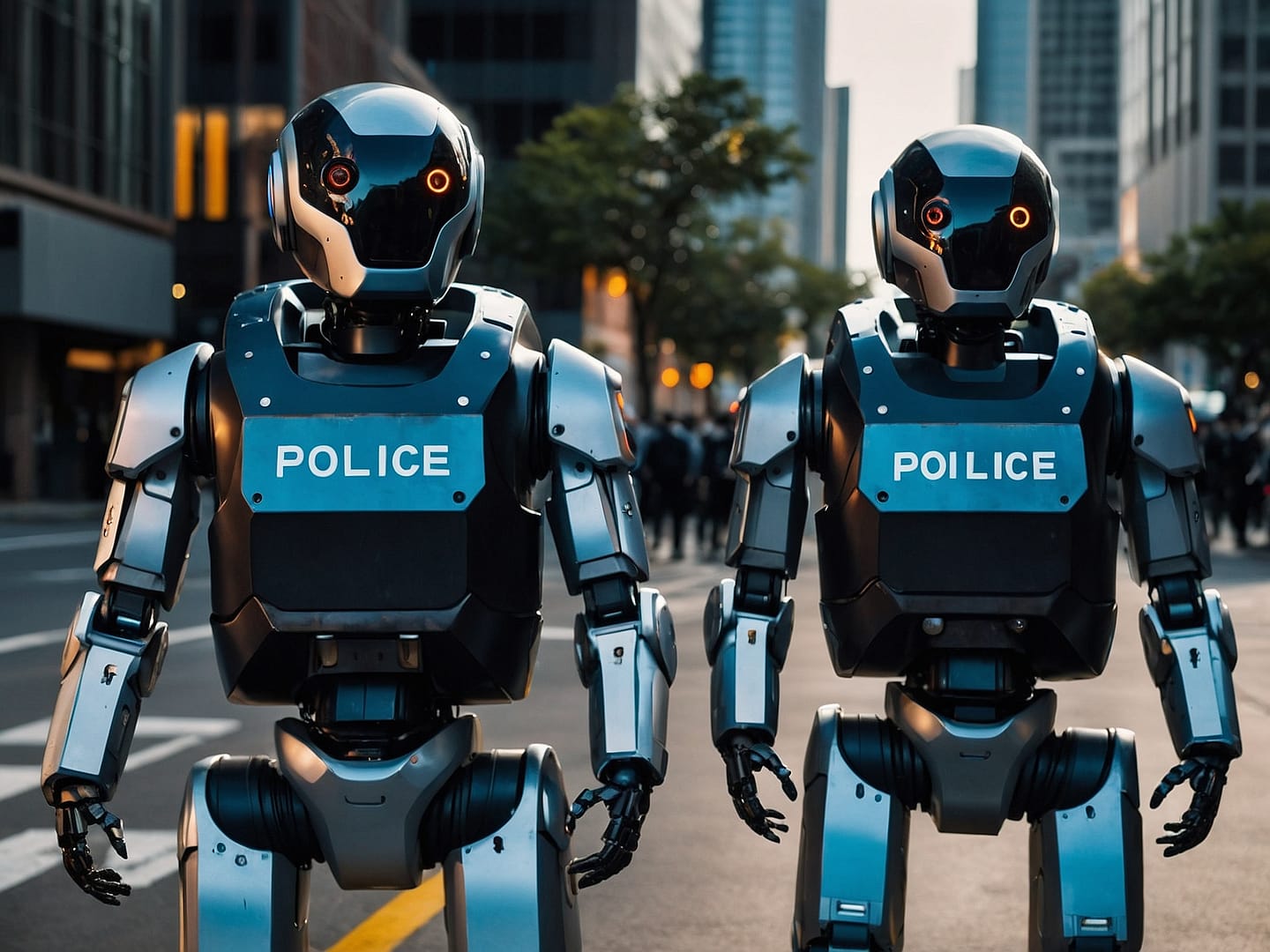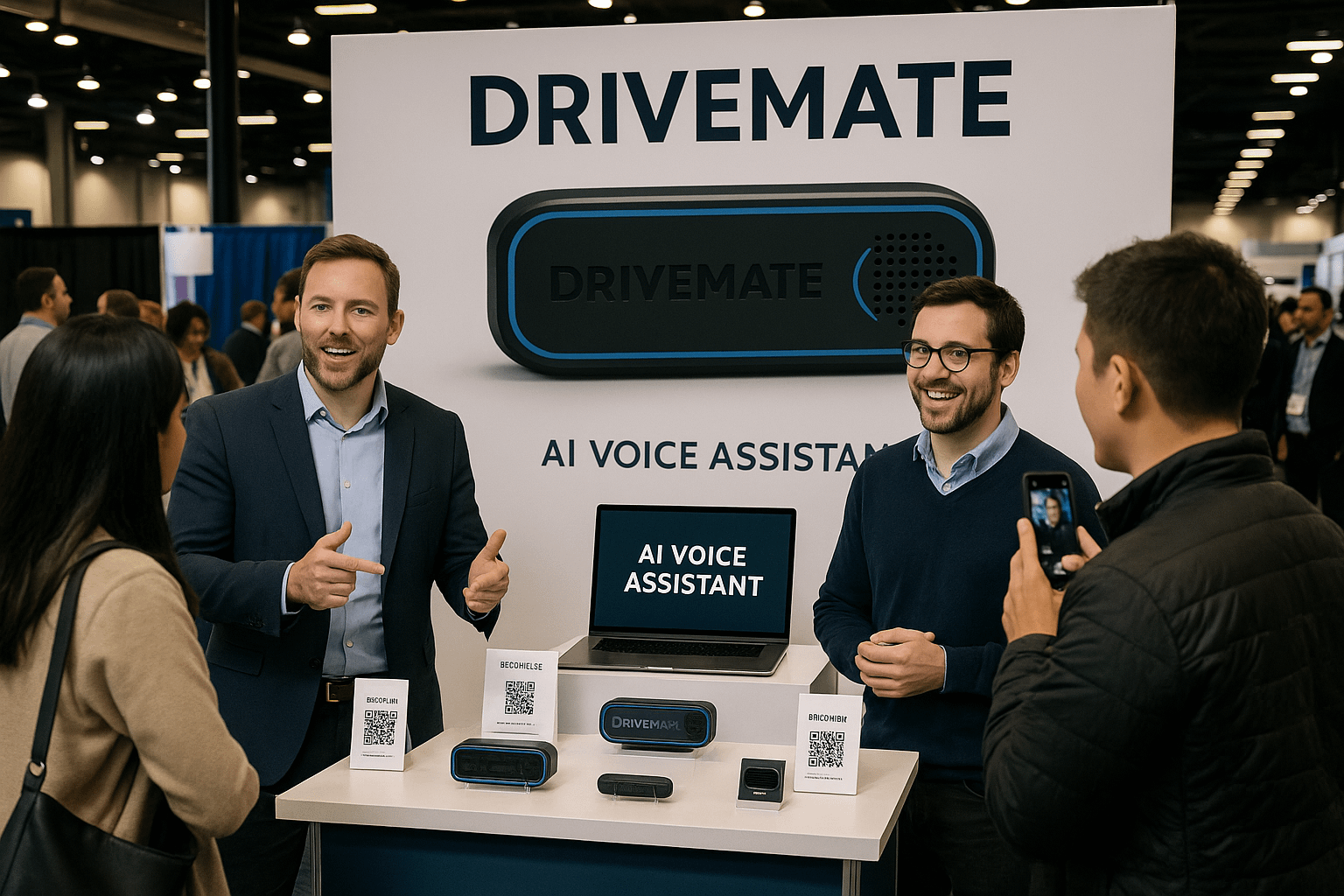How AI Is Going to Take Your Job in the Future! The Inevitable Shift
Artificial Intelligence (AI) is no longer just a futuristic idea—it’s here, it’s real, and it’s transforming the workforce in ways we couldn’t have imagined just a decade ago. From finance to logistics, AI is stepping in, doing jobs faster, smarter, and more efficiently than humans ever could. And while it brings great benefits, it also raises a critical question: Will AI take my job? The reality is, many jobs are indeed at risk. But that doesn’t mean the future is all doom and gloom.
In this blog, we’ll dive into how AI is reshaping industries, which jobs are most vulnerable, the negative and positive impacts of this technological revolution, and how businesses like TradeLink Solution are embracing AI to stay competitive—without losing the human touch.
AI’s Rapid Expansion into the Workforce
Gone are the days when AI was just used for simple automation. Today, AI systems are taking over more complex tasks—decision-making, data analysis, supply chain optimization, and more. Industries like logistics, healthcare, and customer service are already leveraging AI to reduce costs and improve efficiency.
At TradeLink Solution, AI is an essential part of our operations. We use AI to manage international trade logistics, predict supply chain disruptions, and enhance overall productivity. The result? Faster and more efficient processes, with less need for manual intervention.
Which Jobs Are Most at Risk?
If your job involves repetitive tasks, basic decision-making, or data processing, it may be at risk. Some of the most vulnerable industries include:
- Customer Service: AI chatbots are handling queries around the clock, reducing the need for large customer support teams.
- Manufacturing: AI-powered robots are increasingly responsible for tasks such as product assembly and quality control, often with better accuracy than human workers.
- Logistics and Transportation: Automated systems now manage warehouse operations and self-driving trucks are being tested, signaling a reduced need for human labor in these industries.
- Data Analysis: AI is rapidly overtaking human capabilities in data processing, with tools that can analyze huge datasets in real time, offering insights that no human could match in speed or scope.
The Negative Impact: Job Losses and Inequality
Unfortunately, job displacement is one of the biggest downsides of AI’s rapid expansion. According to the World Economic Forum, 85 million jobs could be displaced by AI by 2025. Workers in repetitive, low-skill roles are most at risk. As AI continues to improve, the gap between those who can adapt and those who cannot will widen, leading to increased social and economic inequality.
The psychological toll is significant too. Losing a job to a machine can result in a loss of identity, purpose, and financial security for millions of people. This impact will be felt most by lower-income workers, further exacerbating the divide between the rich and the poor.
Historical Perspective, Technology and Job Displacement
AI’s rise mirrors past technological revolutions. Think back to the Industrial Revolution, when machines began to replace manual labor. While that led to widespread job losses, it also created new industries and opportunities. The challenge with AI is the pace of change—it’s happening faster than ever before, leaving many unprepared to make the shift.
However, just like during the Industrial Revolution, new opportunities will emerge. The key is for workers and businesses to adapt quickly and take advantage of the new AI-driven economy.






















The Positive Side, New Job Creation and Innovation
While AI will undoubtedly replace some jobs, it will also create new opportunities in areas like AI development, machine learning, and data science. Workers who upskill and transition into these new fields will thrive. There are also many areas where AI cannot replace humans—creativity, emotional intelligence, and problem-solving remain distinctly human strengths.
TradeLink Solution is a prime example of how AI can work alongside humans. By automating repetitive tasks, we allow our employees to focus on more meaningful, strategic work. AI handles the mundane, freeing humans to innovate and create.
The Role of Digital Twins in Optimizing Global Supply Chains
A revolutionary AI application is the use of digital twins—virtual replicas of physical systems. In the global trade industry, digital twins allow businesses like TradeLink Solution to simulate entire supply chains, predicting issues and optimizing efficiency in real-time.
For example, we use digital twins to forecast supply chain disruptions before they occur, helping us optimize logistics and streamline operations. This reduces the need for manual intervention and boosts overall efficiency, but it also requires new technical skills to manage and improve these systems.
Can Humans Compete with AI?
In many areas, humans simply can’t compete with AI. When it comes to data processing, speed, and accuracy, AI will outperform us every time. But that doesn’t mean humans are obsolete. In fields that require creativity, empathy, and complex decision-making, humans still have the upper hand.
At TradeLink Solution, we believe that while AI can optimize operations, it cannot replace the human relationships that are the foundation of successful trade. Our team continues to play a critical role in building trust and fostering partnerships with clients worldwide.
Preparing for the AI-Driven Job Market
How can you prepare for the future of work in an AI-driven world? The answer lies in upskilling and reskilling. Focus on developing skills that AI cannot easily replicate, such as creativity, leadership, and emotional intelligence. At TradeLink Solution, we are committed to helping our employees adapt by providing continuous training and support, ensuring that our team thrives alongside AI advancements.
Government Policies and Universal Basic Income (UBI)
Governments will also need to step in to manage the fallout of AI-driven job loss. One potential solution is Universal Basic Income (UBI)—a policy where the government provides a financial safety net for those whose jobs are displaced by automation. UBI could help bridge the gap for workers while they transition into new roles.
Additionally, governments must invest in education and retraining programs to equip workers with the skills they need for the AI-driven future.
The Ethical Dilemma, AI and Workplace Ethics
The rise of AI also raises ethical concerns. Should businesses be allowed to replace human workers with machines purely for profit? What responsibility do companies have to retrain displaced workers? These are questions that need to be addressed as AI becomes more widespread.
At TradeLink Solution, we believe AI should enhance, not replace, the human workforce. By blending AI technology with human expertise, we create a future where both can coexist and succeed.
The Future of Work, Are You Ready for AI?
AI is changing the workforce faster than we expected, and while job losses are inevitable, new opportunities will arise for those who are willing to adapt. TradeLink Solution is proving that AI can enhance human effort, creating a future of work that is efficient, innovative, and people-centered.
FAQ
Q: How will AI affect jobs in the future?
A: AI will automate many repetitive and data-driven tasks, replacing roles in industries like manufacturing, logistics, and customer service. However, it will also create new opportunities in AI development, data science, and more.
Q: Which industries are most at risk from AI job replacement?
A: Industries with repetitive tasks or heavy reliance on data processing are most at risk. These include manufacturing, logistics, finance, and customer service.
Q: What are the benefits of AI in global trade?
A: AI enhances efficiency, reduces errors, optimizes logistics, and predicts supply chain disruptions. At TradeLink Solution, AI allows us to streamline international trade while improving overall productivity.
The future is AI-driven, and it’s coming fast. The only question is: Are you ready?
Ready to integrate AI into your business while maintaining a human touch? Contact TradeLink Solution today to learn how we can help you navigate the future of global trade, leveraging both AI and human expertise.



